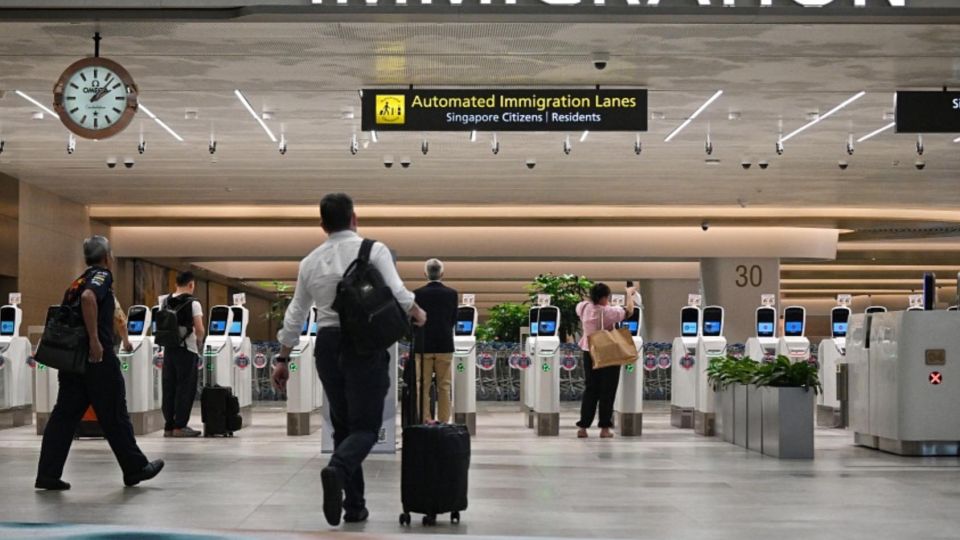August 23, 2024
SINGAPORE – Temperature and visual screening will be carried out at Changi and Seletar airports from Aug 23 as a precautionary measure against the import of mpox from abroad.
The Ministry of Health (MOH), Ministry of Transport and Immigration and Checkpoints Authority said they will enhance Singapore’s surveillance capabilities against the infectious viral disease at the borders.
Similar screening measures will also be implemented at sea checkpoints for crew and passengers arriving on ships from mpox-affected areas.
MOH said that while there are no direct flights between Singapore and any country with an mpox outbreak, there will be temperature and visual screening at Changi and Seletar airports for inbound travellers and crew arriving on flights from places that may be exposed to the risk of mpox outbreaks.
Health advisories have also been put in place at air checkpoints, so that travellers will take the necessary personal precautions to avoid being infected.
Travellers are strongly advised to follow the advisory, especially if they are travelling to and from affected countries.
Those found to have fever, rash and/or symptoms compatible with mpox will be referred for medical assessment.
As at Aug 22, there are 13 confirmed cases of mpox detected this year, all of which are of the less severe clade II infections.
MOH said there are no mpox clade I cases detected in Singapore to date.
It is monitoring the global situation very closely and the outbreak remains generally confined to Africa, with two cases of the more severe mpox clade I reported in Sweden and Thailand.
There are currently no reports of local spread in these two countries.
The World Health Organisation (WHO) on Aug 14 declared mpox a global public health emergency for the second time in two years. As there were no reported cases of the more severe clade I exported out of the African continent, MOH said then that the immediate public health risk to Singapore was low.
Infectious disease experts also said then that there was no need for visitors from countries where mpox is circulating, or Singaporeans who are returning home, to quarantine themselves if they do not have any symptoms.
According to the US Centres for Disease Control and Prevention, there have been more than 27,000 cases and more than 1,300 deaths since January 2023 in the current outbreak in the Democratic Republic of Congo (DRC).
A high proportion of cases have been reported in children younger than 15 years of age.
WHO director-general Tedros Adhanom Ghebreyesus said the emergence of a new clade of mpox, its rapid spread in the eastern DRC, and many cases in several neighbouring countries are “very worrying”.
Health Minister Ong Ye Kung reiterated Dr Tedros’ sentiments on Aug 17 when he said that the mpox outbreak in Africa and other places is expected to spread to the Middle East and Europe, which Singapore has flight connections to.
“We should be on alert. We should expect it to arrive in Singapore, and then when it does, respond appropriately and effectively,” Mr Ong said.
The prevailing precautionary measures to detect and manage mpox cases remain unchanged and all travellers are required to report mpox-related symptoms, such as fever or rash, and travel history through the SG Arrival Card.
Medical practitioners are to notify MOH of all suspected mpox cases.
Suspected cases will be isolated in hospital, so that they can be further assessed and tested for mpox.
Contact tracing is conducted for all confirmed cases of mpox to limit community transmission.
All identified contacts will be informed to monitor their health for symptoms of mpox and to seek medical advice if unwell.
Close contacts will also be offered vaccination to reduce the risk of mpox infection.
The current vaccination approach focuses on people at high risk of infection, such as close contacts of mpox cases. MOH is monitoring the situation closely and will adjust its vaccination strategy accordingly. For now, population-wide mpox vaccination is not recommended, given the current disease epidemiology.
Travellers, especially those visiting places affected by mpox, are to take the necessary precautions, such as maintaining a high standard of personal hygiene; avoiding direct contact with skin lesions of infected people or animals; avoiding high-risk activities like having multiple sex partners or casual sex; and avoiding contact with wild animals and consumption of bushmeat.
Returning travellers, especially those coming back from countries affected by mpox, should seek immediate medical attention if they develop fever or rash within 21 days of their return. They should inform their doctor of their recent travel and exposure history.

